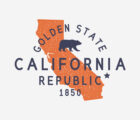
The Professionalism Education Committee often gets asked to clarify whether the Code of Professional Conduct and the Actuarial Standards of Practice (ASOP) apply to various scenarios. We have also received comments that the focus of these articles is generally on actuaries practicing in the U.S. We plan to address some of these scenarios in a miniseries of articles in the Actuarial Review.
While the articles will be posing scenarios as they apply to credentialed actuaries, we feel that these could apply to anyone doing work of actuarial nature, regardless of whether they intend to become credentialed.
To make this truly a learning and professionalism experience, we want your feedback. You can send your comments and questions to ar@casact.org.
Gandalf Financial Services, LLC (GFS) is a top-tier consulting company that specializes in mergers and acquisitions (M&A) due diligence. They employ teams of accountants, financial consultants, actuaries and other specialists to provide the most accurate and complete information to help their clients make good decisions regarding the purchase or sale of a company.
Oakenshield Capital has contracted with GFS to perform due diligence regarding the purchase of Lonely Mountain Insurance Company (“Lonely Mountain”) from Smaug Plunder Investments.
News of proposed transactions and negotiations must be kept confidential until closing, or it could ruin the deal. Because of this, a confidentiality clause is included in every master service agreement and statement of work. Also, every employee at GFS working on the M&A project has signed a non-disclosure and confidentiality agreement (NDA) related to this project.
Bilbo’s first thought would be to discuss his findings with Gollum, but Gollum is not part of the transaction team and Bilbo cannot contact her without possibly breaching the NDA.
Bilbo is a newly minted FCAS and has been with GFS for two years. He has been assigned to the Lonely Mountain M&A project. Like everyone else, he has signed an NDA.
Lonely Mountain has identified a senior management team for the proposed transaction and requires that all communications take place with that team to maintain confidentiality. However, Gollum, Lonely Mountain’s chief actuary, is not a member of the transaction team.
Bilbo has received and reviewed a copy of the most recent Statement of Actuarial Opinion, Actuarial Opinion Summary and related actuarial reports for Lonely Mountain, all signed by Gollum. Bilbo has also performed an independent analysis of Lonely Mountain’s reserves. The first thing he notices is adverse development associated with a book of long-term insurance policies, all related to Lonely Mountain’s mining operations. Bilbo’s best guess is that Lonely Mountain has adopted a pay-as-you-go approach to liabilities for these policies, using current year premiums to cover prior-year IBNR. Also, Bilbo notices that Gollum relied on a single reserve method of her own design, which, according to various reports she issued, better fits the data and this line of business. This is counter to the use of multiple generally accepted, accident year, ultimate loss projection methods that Bilbo learned from all his years of professional and educational training.
Nevertheless, Bilbo decides to review some ASOPs and the Code of Professional Conduct.
ASOP No. 43, Section.2.1 defines an Actuarial Central Estimate as “an estimate that represents an expected value over the range of reasonably possible outcomes.”
He notices material differences between his loss reserve and unearned premium estimates compared to Lonely Mountain’s estimates. The combination of these observations suggest to Bilbo that Lonely Mountain could be insolvent if Bilbo’s estimates turn out to be more accurate.
Bilbo’s first thought would be to discuss his findings with Gollum, but Gollum is not part of the transaction team and Bilbo cannot contact her without possibly breaching the NDA. Is this a simple misunderstanding of what is presented in the provided materials? Should he get permission to contact Gollum?
Precept 10: Courtesy & Cooperation states “an Actuary shall perform Actuarial Services with courtesy and professional respect and shall cooperate with others in the Principal’s interest.”
Gollum would have to cooperate to resolve questions from Bilbo if he reaches out. But are there other concerns?
Precept 7: Conflict of Interest states “an Actuary shall not knowingly perform Actuarial Services involving an actual or potential conflict of interest…”
Gollum might be conflicted if she is involved due to her stock ownership or executive benefit from the sale. In addition, she was excluded from the transaction team by Smaug Plunder Investments in the first place so that her opinion can continue to be unbiased as she continues to service the company and render actuarial opinions.
Bilbo recalls that Precept 1 applies to everything an actuary does in the course of their work. Did Gollum violate Precept 1?
Precept 1: An Actuary shall act honestly, with integrity and competence, and in a manner to fulfill the profession’s responsibility to the public and to uphold the reputation of the actuarial profession. Annotation 1-1: An Actuary shall perform Actuarial Services with skill and care.
What about Precept 4?
Precept 4: An Actuary who issues an Actuarial Communication shall take appropriate steps to ensure that the Actuarial Communication is clear and appropriate to the circumstances and its intended audience, and satisfies applicable standards of practice.
Bilbo recalls that Precept 1 applies to everything an actuary does in the course of their work. Did Gollum violate Precept 1?
Since he believes there are some material violations, he moves on to Precept 13.
Precept 13: An Actuary with knowledge of an apparent, unresolved, material violation of the Code by another Actuary should consider discussing the situation with the other Actuary and attempt to resolve the apparent violation.
But he can’t discuss it with Gollum because she is not part of the transaction team.
Precept 13 continues: If such discussion is not attempted or is not successful, the Actuary shall disclose such violation to the appropriate counseling and discipline body of the profession, except where the disclosure would be contrary to Law or would divulge Confidential Information.
Bilbo now realizes that he is also constrained by the Code.
Precept 9 states: An Actuary shall not disclose to another party any Confidential Information unless authorized to do so by the Principal or required to do so by Law.
What other precepts, ASOPs or actions should Bilbo consider before deciding what to do? Consider consulting the Code and your own intuition and experience as you think through the following questions. Perhaps consider having a discussion group with colleagues and comparing thoughts on this. This is a great way to complete some of the professionalism continuing education requirements!
- Should he complete his independent analysis and communicate his findings to Oakenshield?
- Would the jurisdiction affect the results’ interpretation and what Bilbo could do?
- In what scenarios should Bilbo contact the ABCD or even a colleague?
Let us know your thoughts by writing to ar@casact.org.











